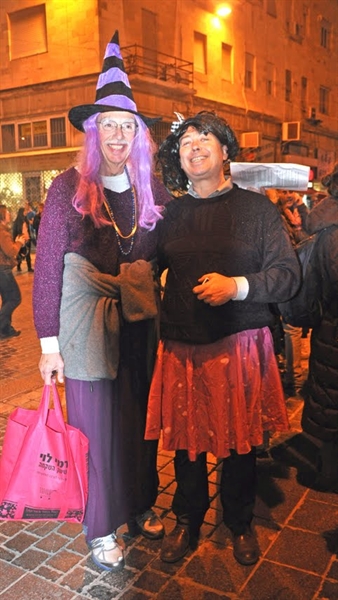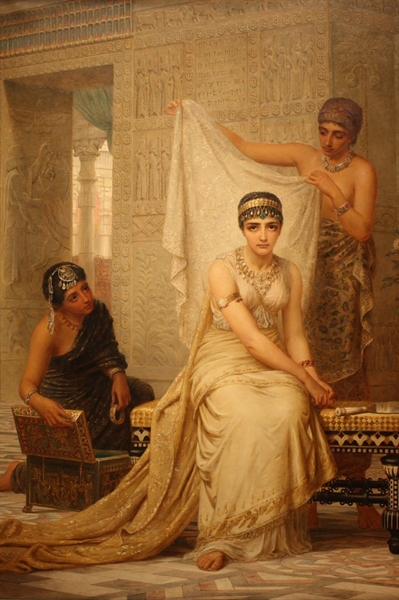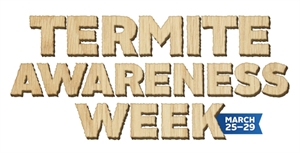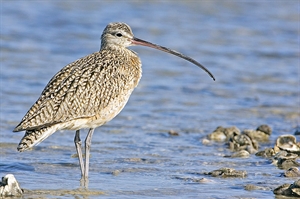Purim Day 2025 is on Sunday, March 16, 2025: What is this holiday called Purim?
Sunday, March 16, 2025 is Purim Day 2025. Celebrate Purim With Us Celebrate with the Jewish Federation of Greater Philadelphia.
As an Amazon Associate I earn from qualifying purchases.

Purim is one of the most joyous and fun holidays on the Jewish calendar. It commemorates a time when the Jewish people living in Persia were saved from extermination.
The story of Purim is told in the Biblical book of Esther. The heroes of the story are Esther, a beautiful young Jewish woman living in Persia, and her cousin Mordecai, who raised her as if she were his daughter. Esther was taken to the house of Ahasuerus, King of Persia, to become part of his harem, and he loved her more than his other women and made her queen. But the king did not know that Esther was a Jew, because Mordecai told her not to reveal her nationality.
The villain of the story is Haman, an arrogant, egotistical advisor to the king. Haman hated Mordecai because Mordecai refused to bow down to Haman, so Haman plotted to destroy the Jewish people. In a speech that is all too familiar to Jews, Haman told the king, “There is a certain people scattered abroad and dispersed among the peoples in all the provinces of thy kingdom; and their laws are diverse from those of every people; neither keep they the king's laws; therefore it does not profit the king to suffer them.” Esther 3:8. The king gave the fate of the Jewish people to Haman, to do as he pleased to them. Haman planned to exterminate all of the Jews.
Mordecai persuaded Esther to speak to the king on behalf of the Jewish people. This was a dangerous thing for Esther to do, because anyone who came into the king's presence without being summoned could be put to death, and she had not been summoned. Esther fasted for three days to prepare herself, then went into the king. He welcomed her. Later, she told him of Haman's plot against her people. The Jewish people were saved, and Haman was hanged on the gallows that had been prepared for Mordecai.
The book of Esther is unusual in that it is the only book of the bible that does not contain the name of G-d. In fact, it includes virtually no reference to G-d. Mordecai makes a vague reference to the fact that the Jews will be saved by someone else, if not by Esther, but that it the closest the book comes to mentioning G-d. Thus, one important message that can be gained from the story is that G-d often works in ways that are not apparent, in ways that appear to be chance, coincidence or ordinary good luck.
Purim is celebrated on the 14th day of Adar, which is usually in March. The 14th of Adar is the day that Haman chose for the extermination of the Jews. In leap years, when there are two months of Adar, Purim is celebrated in the second month of Adar, so it is always one month before Passover. In cities that were walled in the time of Joshua, Purim is celebrated on the 15th of the month, because the book of Esther says that in Shushan (a walled city), deliverance from the massacre was not complete until the next day.
The word “Purim” means “lots” and refers to the lottery that Haman used to choose the date for the massacre.
The Purim holiday is preceded by a minor fast, the Fast of Esther, which commemorates Esther's three days of fasting in preparation for her meeting with the king.
The primary commandment related to Purim is to hear the reading of the book of Esther. The book of Esther is commonly known as the Megillah, which means scroll. Although there are five books of Jewish scripture that are properly referred to as megillahs (Esther, Ruth, Ecclesiastes, Song of Songs, and Lamentations), this is the one people usually mean when the speak of The Megillah. It is customary to boo, hiss, stamp feet and rattle gragers (noisemakers; see illustration) whenever the name of Haman is mentioned in the service. The purpose of this custom is to “blot out the name of Haman.”
We are also commanded to eat, drink and be merry. According to the Talmud, a person is required to drink until he cannot tell the difference between “cursed be Haman” and “blessed be Mordecai,” though opinions differ as to exactly how drunk that is.
In addition, we are commanded to send out gifts of food or drink, and to make gifts to charity. The sending of gifts of food and drink is referred to as shalach manos (lit. sending out portions). Among Ashkenazic Jews, a common treat at this time of year is hamentaschen (lit. Haman's pockets). These triangular fruit-filled cookies are supposed to represent Haman's three-cornered hat.
It is customary to hold carnival-like celebrations on Purim, to perform plays and parodies, and to hold beauty contests. I have heard that the usual prohibitions against cross-dressing are lifted during this holiday, but I am not certain about that. Americans sometimes refer to Purim as the Jewish Mardi Gras.
Work is permitted as usual on Purim, unless of course it falls on a Saturday.
what is shoshan purim?
You spellt it wrong it is shushan purim.Which is the day after purim or tommorro.The day after the jews of shushan rested after war.It is apart of purim.Which began last night and ends tonight.Shushan purim is such a minor holiday it is only observed in israel to only chassidim jews.

i need a purim vart (divrey torah) so please someone send me one?
Parshat Vaeyra
2007
Reassurance from the People That Know You Best
In the beginning of the Parsha, God spoke to Moses and told him that he has heard the groaning and suffering of the Israelites. God told Moses, “I will take you away from your forced labor in Egypt and free you from power, and with great acts of judgment…I will bring you to the land regarding which I raised My hand, swearing that I would give it to Abraham, Isaac, and Jacob. I will give it you as inheritance. I am HaShem.” (Exodus 6:7-8).
Moses told this information to the Israelites however they would no longer listen to him. Everyone can relate to this story, remembering a time you offered heartfelt guidance and then observed as someone chose to act or respond counter to your advice. As young adults, students are learning to negotiate the balance between self-autonomy and learning from the advice of peers and mentors. In this way, students on campus struggle with the same issues as the young Israelite people in this Torah portion. Though they strive for independence, they still seek out leadership and guidance to help them along the way. At the same time we are here as a sounding board for students and are here to listen to their issues about classes, roommates, or friends. I continually talk to my mom, sometimes three or four times a day, about a variety of things and still yearn for her advice and for her to help me through difficult decisions, just as Moses did with HaShem. My mom is like Moses and I am the Israelite. I may not listen to her at times, but in the end I know she means well and is doing what is in my best interest and has helped in shaping me to be the person I am today.
Moses was telling HaShem that he does not have the self-confidence to go and speak to the Israelites. HaShem then spoke to Moses and Aaron and gave them instruction regarding the Israelites and Pharaoh, so they would be able to get the Israelites out of Egypt, although HaShem only told this to Moses.
Moses and Aaron go and speak with the Pharaoh, but HaShem knows the Pharaoh will not listen to Moses so he has a plan in mind for hurting Pharaoh. HaShem tells Moses, there are going to be signs that will destroy Egypt. When Pharaoh asks to speak with you [Moses] he will ask you to prove yourself.
Moses goes and asks the Pharaoh “to let my people go.” The Pharaoh denies his request and Moses does as he was told by HaShem. He lays down his staff and it turns into a serpent. Then the Pharaoh calls on his magicians and scholars to do the same thing with their magic tricks, then Aaron’s staff swallowed up their staffs. Still, the Pharaoh remained obstinate. HaShem then instructed Moses to go back to Pharaoh and have him look at the Nile in the morning. Then take the same staff that you turned into a serpent and project it towards the Nile and the river will turn to blood and kill all that is in sight. Tell him that you have received a message from HaShem “to let my people go.” The Pharaoh still refused, thus the first plague came to fruition and the Nile was unable for anyone to drink.
After Moses turned the Nile into blood, six more plagues followed; frogs, lice, harmful creatures (wild beasts), murrain (cattle disease), boils, and hail.
Our students want their freedom when they are on campus. When college freshmen go home after their first semester they have established themselves as independent thinkers with their own rules and no one to look after them every second. When they get home to Mom and Dad’s they are under a new set of rules. They now have to go by their parents’ rules and eventually are craving the freedom they had back on campus. I remember back to when I was home from college after my first semester. My parents gave me rules to follow [and I followed them] such as cleaning up my room, laundry, or to be home at a certain time; however, when I arrived back on campus I did not follow their rules anymore, I followed my own rules. We should not take that freedom we had in college for granted but sometimes we need that extra person to help guide us along even if we are in college and coming home for the first time or have been living on our own for years.
When the Pharaoh realized that the plagues have stopped he returned to his evil ways and did not let the Israelites leave, just as HaShem predicted through Moses.




















